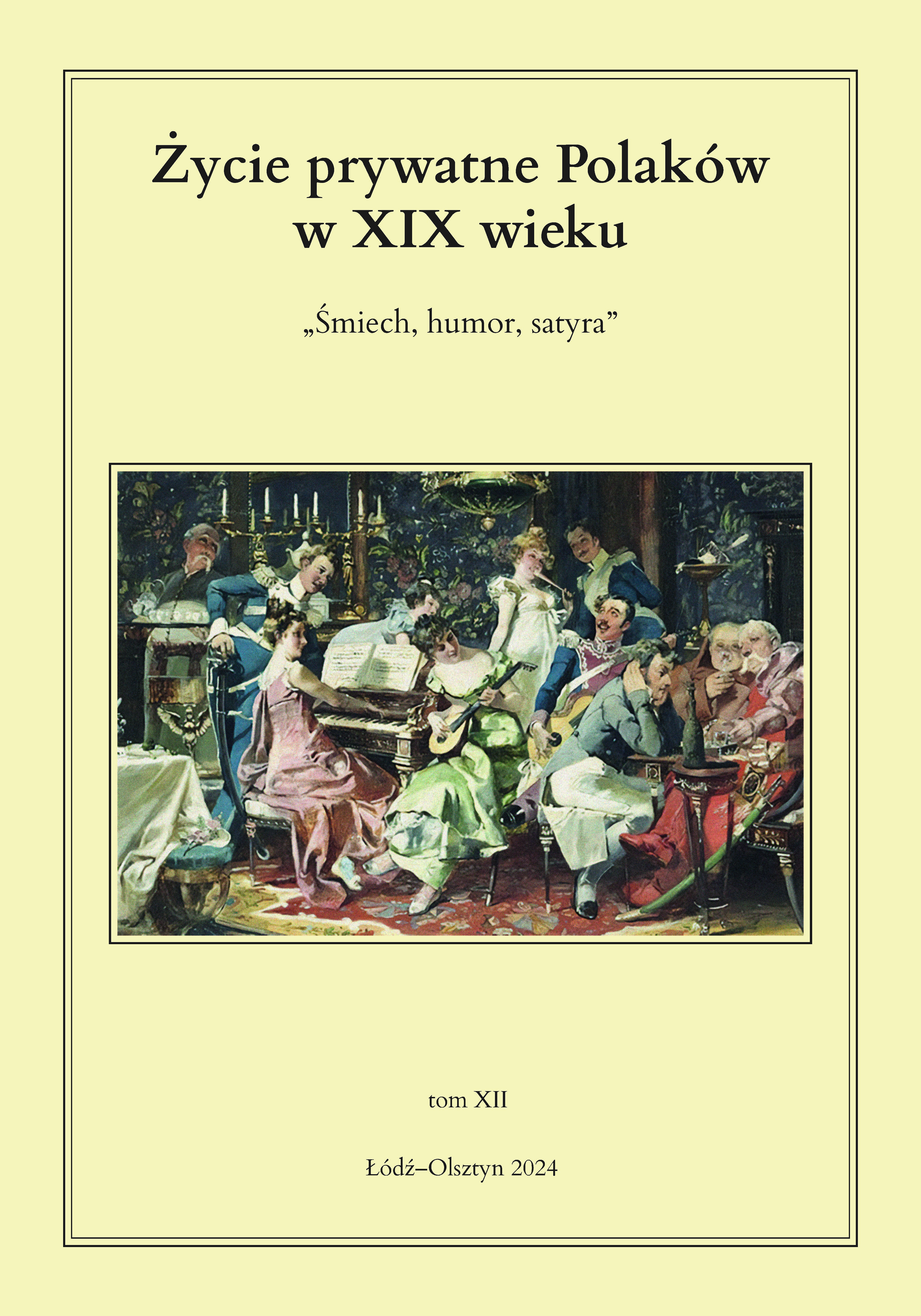Stygmatyzacja poprzez wyśmianie osób w wieku starczym i osób samotnych w XIX-wiecznej społeczności chłopskiej
Stigmatization through ridicule of the aged and the lonely in the 19th century peasant community
Author(s): Bartłomiej Gapiński
Subject(s): History, Cultural history, Sociology, Modern Age, 19th Century
Published by: Wydawnictwo Uniwersytetu Łódzkiego
Keywords: old people; celibate; unmarried; peasants; ridicule; customs in the 19th century
Summary/Abstract: The article is on the verge of historical and ethnological reflection. It deals with the stigmatisation of the elderly and single (celibate and unmarried) in the 19th century peasant community. The author focused on selected aspects of stigmatisation: the old spouse-young wife relationship, the ridicule of such a relationship, the evocation of the humorous beggar’s ball, the humiliation of the celibate and unmarried on a daily basis. Finally, the author focused on rituals that depreciate the lonely, particularly evoking “kłoda popielcowa” and “podkoziołek”. The conclusions reached allow to find peculiarities corresponding to the division of Poland into partitions. Notarial tradition (for the transfer of estates) and the metaphorical nature of rituals conditioned old age and loneliness in the Prussian partition. The Russian partition represented a version of the culture where the tradition of notarial contracts also developed, but the rituals were still linked to the vexed, bodily stigmatisation. Yet the worst situation was in Galicia: there was no notarial tradition for the inheritance of estates and only customary law, while rituals and practices of daily life were characterised by metonymy and involved genuine violence.
Book: Życie prywatne Polaków w XIX wieku. Śmiech, humor, satyra. Tom 12
- Page Range: 333-353
- Page Count: 21
- Publication Year: 2024
- Language: Polish
- Content File-PDF

